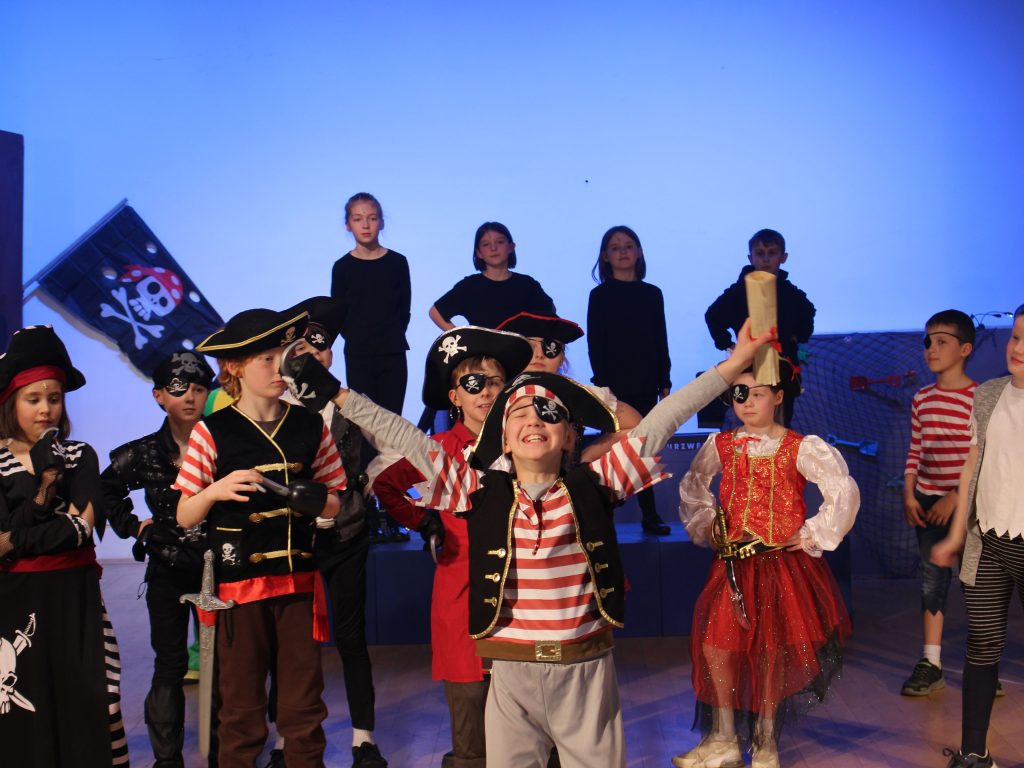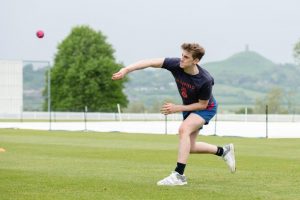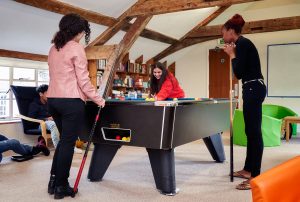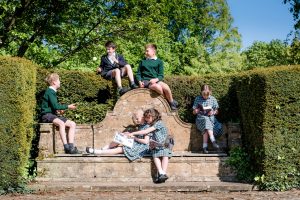The Princess of Wales has launched a long-term campaign from The Royal Foundation Centre for Early Childhood to promote public understanding of the importance of the first five years of a child’s life. Laura Turner, an independent schools inspector and headmistress of Barnard Castle Preparatory School, explains the role of early years education in the shaping of young lives
The claymation film that accompanies the Princess of Wales’ Shaping Up campaign shows the development of baby Layla as she grows from birth into a little girl. It follows her through early play, trusted adults waving goodbye, learning to walk, to share toys and be kind, and learning to swim before she reaches her fifth birthday. All the while colours flash across her mind as she develops thoughts, feelings and emotions in response to the experiences and the world opening up before her.
The fact that the character of Layla is made from clay is, I believe, no accident. All these influences, encounters and individuals that impact on her are helping to mould her into the person she is becoming.
The film tells us that our brains develop faster from pregnancy to five than at any other time in our lives. It is, therefore, a time when what we experience has the potential for the greatest impact too.
It is why early years education is so important. By the time children join my school at the age of four, they may already have been to nursery, had a childminder, been looked after by grandparents or one or both of their own parents. They may go to a formal nursery setting every day or for a few hours a week, or spend all their time at their home or someone else’s. They may socialise with other children regularly, or not; they may have siblings, younger or older, or be only children.
All of these different scenarios have already had an impact on their independence and learning, to a greater or lesser degree. They learn basic life skills within the first two weeks of being at Barney before we begin developing the educational side of their time in school.
With just 12 children in our Reception class with a teacher and classroom assistant, the children benefit from one-to-one care. However, if you have a class of 30 or more children, giving that focused attention becomes more challenging.
It is a big jump from nursery to Reception and then onto Year 1 and at each stage we are weaving lots of learning opportunities. We can quickly help those children who have done little learning in reading, writing and maths before they arrive to catch up. It’s incredible to see in just four months how far our children come, as they choose to write in full sentences, some even writing full stories now.
Reception class is quite fast paced in the first few months, and it is a really critical time for young brains. Children are like sponges and, as teachers, we have a great opportunity to spark that growth and help them develop, small classes ensuring that we can work with each child individually. By Easter, they are ready for that step up to Year 1.
It is not all about traditional learning, of course. The best schools also focus on helping children develop their life and social skills in ways that appeal to, and are effective for, the youngest pupils in school.
At Prep School, we turn them into superheroes in line within our Barney Feel, Be, Share, Go programme. Through characters aligned to each aspect of this they learn the importance of compassion and gratitude, to have humour and resilience and how to be creative learners. They put on their cape of compassion and masks of resilience, and they love it.
Wellbeing is something everyone is more aware of, including our children. We have a Wellbeing Week coming up in school, and our School Council has asked for a Wellbeing Year because they have taken on its importance so readily.
They know how important it is to take time out, which we do three times a day, in the morning, at lunchtime and at the end of the school day. The children have lots of time to run around at school, so these are three opportunities to stop, to think, perhaps to do some yoga, a breathing exercise, to read a mindful story or listen to music as they learn to understand themselves.
They have You Are Awesome booklets in which they constantly reflect on and highlight what’s been great about their day, what’s the best thing they’ve learned and what they’ve tried that’s new, with positive outcomes.
Our deputy head pastoral has a range of initiatives including each child knowing their Hand of Support, five people they know they can rely on. We review it every term because, at this age, friendships can alter quite quickly so it changes as the children change.
As the Princess’ campaign acknowledges, early years is such a critical time in shaping young minds and laying down that pathway for children to follow through school and the rest of their lives. From Reception our children know they are part of a bigger school – pupils can join us at four and stay at Barney until they are 18 – and are introduced to this from day one. They don’t eat or play separately to the rest of Prep School, for instance, so they always have older role models.
On day three they take part in a vote for their Reception representative on our School Council, and the winning candidate is supported to attend meetings by a Year 6 pupil. It is too easy to say, ‘they’re little, they don’t need to be doing that yet’, but these are the building blocks that help them grow in confidence and take things in their stride later on. Similarly, they will lead a class assembly when they tell everyone about their hopes and dreams, and take part in whole school hymn practice on their first Friday.
Their first term also sees Reception taking part in the Barney Run cross country race, with the whole school out on the fields. It is a huge accomplishment for our youngest children, and an experience they love.
After a few days, they can separate from the adults who drop them off at school since our Year 6 pupils, under supervision, walk them up the drive and into school. This is beneficial for both younger and older children as they learn independence, and responsibility and leading by example, respectively, all wrapped in the support of a nurturing environment.
The opportunities provided by independent schools support all their social skills towards becoming children with the ability to hold a conversation at even the youngest age, to hold eye contact and interact properly; these are rare and important attributes as they get older.
The Princess of Wales talks about supporting parents as well as nurturing children. This comes down to the relationship schools have with their parents. Schools are not the sole educators and parent partnerships are key, working together to give the best start for every child.
Our children have home-school diaries, which are a daily, two-way sharing of information, but parents also know they can come into school at any time. We don’t just want them to drop children off and say ‘see you later’; we want them to be part of their child’s school journey, sharing our knowledge and having check-in points so we all know what is going on with their child and can support them.
Strong relationships like this mean that parents can tell us if a relative is poorly or dad is having to work away a lot; they can feel confident sharing any difficulties, which can be reassuring for them.
Finally, the Princess spoke of nurturing the teachers and staff who look after our children, which happened to come in a week where state education nationally was affected by strike action. Our staff can be members of unions, but because we are independent there is never any threat of school closing because of strikes.
Barney is a lovely, happy place to work too, and we have lots of wellbeing initiatives for our staff, including having a governor dedicated to the issue; there is always someone to talk to.
I often hear parents saying they may consider independent education when their children are older. My response is that the foundations for learning, self-confidence with humility and leadership are laid down very early. There is a cost implication to independent education, of course, but if you are working parent, the wrapround care until 5pm every day, and teaching in musical instruments and singing, French, swimming in our school pool plus a host of other free activities means there are savings in not having to pay for lessons outside school, as well as no packed lunches to make since a hot meal is included every day too.
Parents spend quite a lot of time focused on secondary education and university when I would argue, as this campaign promotes, that early years education is just as important, an investment, if you can, that is always worth making.
Categories: Barnard Castle School School News








